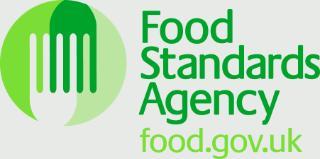About the Project
The global food system and the complex infrastructures which underpin it are woven intimately and ubiquitously into the fabric of cities, and the stability and security of contemporary urban life depends heavily upon the smooth functioning of food production and provisioning arrangements. Yet food systems - both within the UK and overseas - have regularly been confronted by unforeseen scares and disruptions, ranging from animal disease outbreaks to accidental contamination and from outbreaks of food-borne illness to crises of confidence in the provenance of foodstuffs.
As such, a food system that is resilient to shocks and able to deal with uncertainty and emergencies requires the capacity to anticipate and make provisions for handling possible future events. The Making Provisions research project - jointly funded by the Economic and Social Research Council (ESRC) and the Food Standards Agency (FSA), under the Global Food Security Programme - builds upon this insight by examining the ways in which those involved in the production, processing, retail, management and governance of food anticipate, and develop plans to avoid or deal with, future problems through precaution, preparedness and pre-emptive action.
Through desk-based research, site visits and interviews the research team will explore how the growing quantity of information generated about food during its production, and the increasingly sophisticated technologies used to capture and manage that information, helps or hinders the anticipation and management of food emergencies. Making Provisions will also examine how those involved in all aspects of food production, retail and regulation (from large scale commercial operations to local and alternative modes of provisioning) form communities and networks to plan for problems and build a more resilient food system, and will ask whether certain ways of thinking and acting - and the bodies associated with them - come to dominate efforts to stave off future problems.
The project will address the following research questions:
1. What forms of anticipatory activities, techniques and technologies exist in the food system?
2. How are these activities enhanced, driven or hindered by the increased amounts of information associated with foodstuffs?
3. How do they affect relationships between different sites and actors in the food system? What patterns of inclusion in - and exclusion from - particular food chains and infrastructures might they generate?
4. In what ways might anticipatory actions be improved, disseminated or introduced to help build a more resilient food system without unduly compromising that system's day-to-day functioning?
The project aims to identify examples of best practice concerning the management of food system risks, and to highlight opportunities for anticipatory action which are overlooked within current practice. We will use this website to make our research findings available to organisations interested in developing a greater awareness of, and accessing information about, the anticipation and management of food crises.

